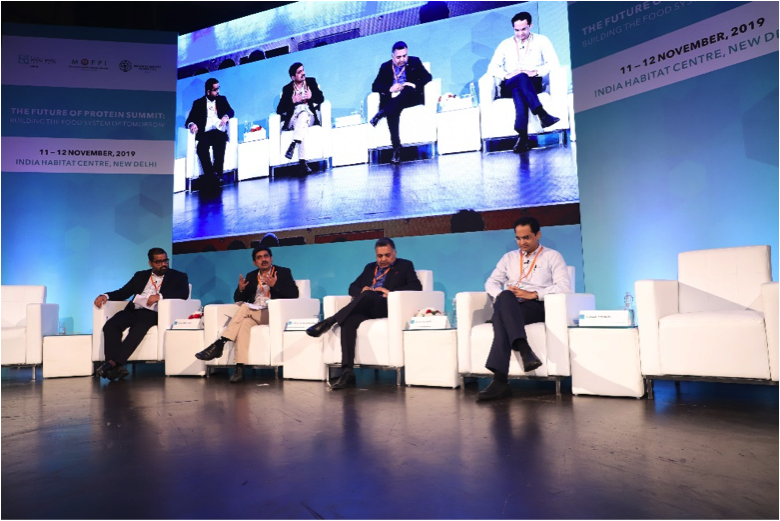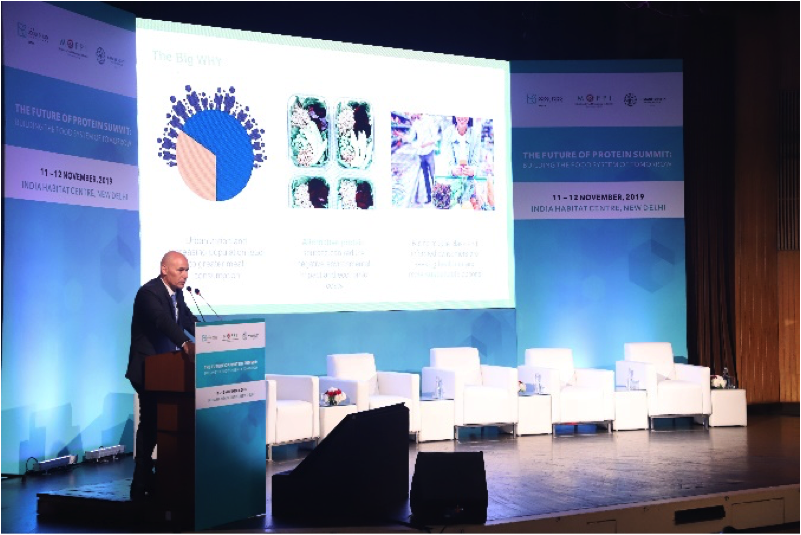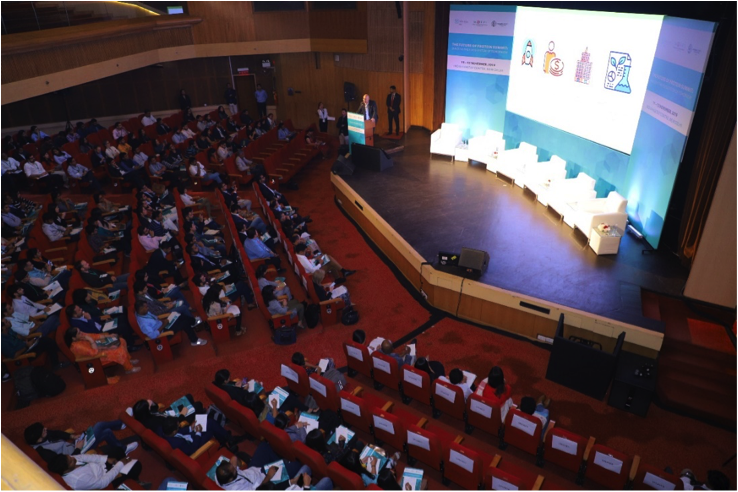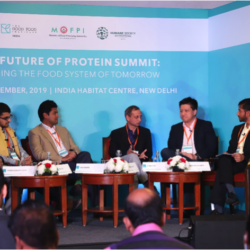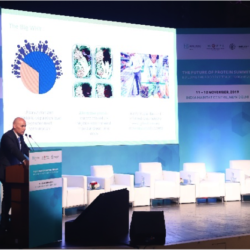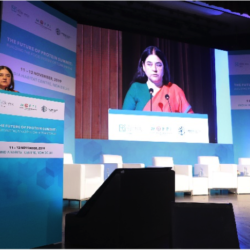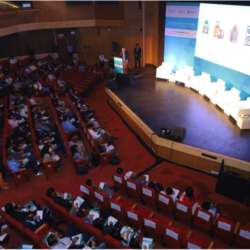The Future of Protein Summit is an annual event that is jointly organised by Humane Society International/India and the Good Food Institute India. With its first edition held in 2018 in Hyderabad, the Future of Protein Summit aims to open up the critical, globally relevant sector of sustainable, humane food production and trade (through plant-based and cultivated meat dairy and eggs) as a solution to the pressing ethical, environmental and social challenges of current animal-based protein production methods. The event aims to discuss pertinent questions related to the advancement of the alternative protein sector, showcase to the wider audience the growth the sector is seeing, and enable the establishment of partnerships between key stakeholders to take the sector forward. It also intends to serve as a platform to promote scientific innovation and entrepreneurship, facilitate potential key government-industry partnerships, and pave the way for investments into the sector.
The Future of Protein Summit 2019 was held at the India Habitat Centre, New Delhi on the 11th and 12th of November. This summit was the second edition of the annual event. This time, the event was held in association with the Ministry of Food Processing Industry, Government of India – this partnership and show of support from a key ministry for the advancement of food technologies in the country was an important step forward for the growth of the alternative protein sector in India. The event saw a line-up of over 60 international and national speakers spread over 18 panel discussions and individual addresses. Over 400 representatives, stakeholders and students from business, academia, and policy making, and advocacy attended the event. Five key organizations partnered for the event, including the Centre for Cellular and Molecular Biology, a premier biotechnology government research institute (which was the first Indian institution to receive a government grant for research in cultivated meat), Tasting India Symposium (a global food advocacy initiative), the Embassy of Israel, Omnivore Ventures, a food an agri impact venture fund and Ashika Group, a financial service provider. Omnivore Ventures and Ashika Group also sponsored and curating their own investor and Hotel Restaurant and Café (HoReCa) panels respectively.
The primary goals of this year’s summit were three-fold – first, to showcase the immense market potential of plant-based and cultivated protein, make the business case for involvement from consumer corporations and investors, and pique interest among entrepreneurs. Secondly, the event aimed to bring in engagement and backing from the government – particularly from agencies whose support is paramount for the swift growth of the sector. Lastly, we wanted to demonstrate the role of research institutions to bring out the extensive scientific research in these fields, particularly in the scope of Indian agricultural resources and technological infrastructure. Every discussion in the event was curated specifically for the Indian audience, right from the potential of indigenous plant proteins to beused in alternative protein products, to insights on Indian consumer acceptance and marketing techniques, and the role of Indian businesses and investors in the sector.
This year, the event saw critical endorsements and addresses from key influential representatives from the Indian government, such as Smt Maneka Sanjay Gandhi, Member of Parliament, and Smt. Poonam Mahajan, Member of Parliament, Shri Pawan Kumar Aggarwal, CEO, Food Safety Standards Authority of India (FSSAI), Amitabh Kant, CEO, NITI-Aayog, an important central government think tank for public policy. They elucidated the urgent need for a paradigm shift in current protein production methods, and the important role of policy makers to enable this shift. The event also saw participation from His Excellency Ron Malka, the Ambassador of Israel to India, who spoke about the massive potential for bi-lateral partnerships and expressed Israel’s keen interest to partner with India for alternative proteins. This participation served as a critical show of support of the sector for businesses, scientists, investors and various other stakeholders.




